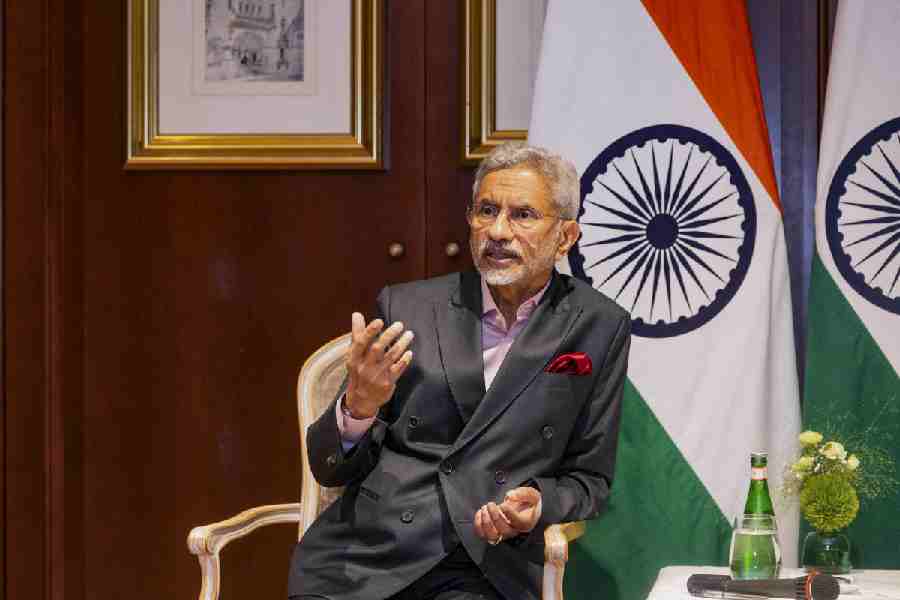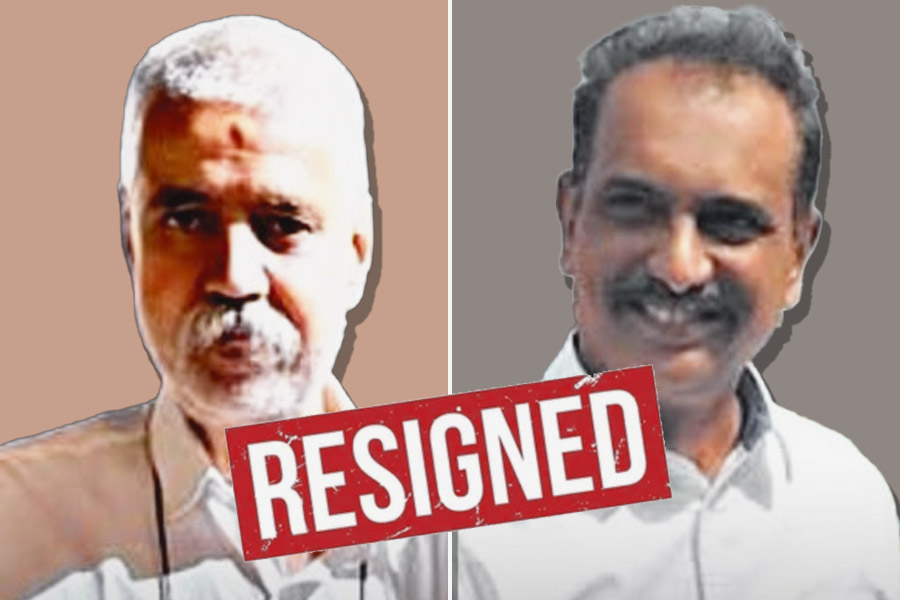 |
| Deng Pufang, son of the late Chinese leader Deng Xiaoping, applauds as Jiang arrives for the congress. (AFP) n See Pages 4 & 16 |
Beijing, Nov. 8: In a parting kick to traditional notions of communism, outgoing Chinese leader Jiang Zemin today secured a permanent place for the country’s fledgling capitalists in the ruling communist party, thereby signalling a long road away from the Long March that Mao Zedong led to bring communists to power half a century ago.
It’s a consummation of the process that Jiang’s mentor, Deng Xiaoping, started in the eighties with the slogan “To get rich is glorious”.
Turning on its head Liu Shao Qi’s text on how to be a good communist, that Naxalites swore by in the sixties and the seventies, Jiang declared that owning a lot of property should be no disqualification for a would-be communist.
Critics, though, say it is a clever move to exonerate party leaders who have made big money, mostly in corrupt deals. Also, it is a signal, they say, to partymen to get greater glory through greater riches.
There have been cases, however, when even the cash-friendly party had to strike. Most famous of recent cases are the death sentence to the mayor and the life sentence to the vice-mayor of Shenyang, the capital city of Liaoning, when they were caught in huge corruption scandals last year. Jiang’s warning against corruption, therefore, could fall on mostly deaf ears.
In his 90-minute opening report to the party congress at the Great Hall of People here this morning, he officially opened the party doors to entrepreneurs, professional and managerial people to join in to “build socialism with Chinese characteristics”.
In terms of party rhetoric, it means a change of far-reaching significance. The party charter, which so far described it as the “vanguard of the working class”, would now be revised to say that it is the “vanguard of the Chinese nation and the working class”.
And, even as 76-year-old Jiang takes his last bow as the leader to hand over the baton to 59-year-old Hu Jintao, the new face of the party is needed to keep alive his mantra of Three Represents.
It says the party represents the advanced productive forces, advanced culture and the vast majority of the Chinese people.
This then is the legacy he wants to leave behind for the party and the people. And Hu, a former hydropower engineer, will take charge to symbolise the rise and rise of professionals and entrepreneurs in the New China of the new century.
In fact, communists living in a time warp would be surprised over how little of ideological dogma was there in Jiang’s long political report. It’s the economy, stupid, he seemed to be telling the delegates all the time.
And, by all indications, except for diehard conservatives, who have been thrown to the wolves anyway, there seemed to be a consensus among delegates at the Great Hall and the common people on the streets around Tiananmen Square that this was the right path for China.
“It’s come at the right time for China,” said Zhang Shumei, who represents Qinghai, one of the poorest provinces in China close to Tibet. “It doesn’t matter if you call them capitalists. The important thing is to woo people with money who will invest in private business,” concurred 25-year-old Diana Peng, a sales executive with Newtech, an IT company in Beijing.
But that sounds more like the voice of the increasingly affluent sections in the big cities. It is in the increasingly job-starved countryside and small towns that the money drain by party apparatchiks is swelling the ranks of the malcontents.











